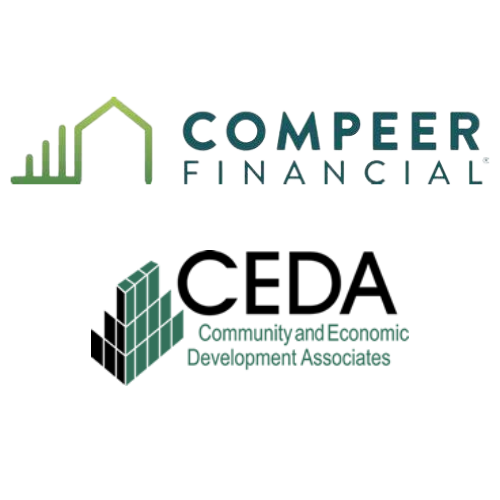It’s time to start thinking about summer activities for kids at Mantorville Art Guild! Here is the list of all our super fun events! Email the Mantorville Art Guild to sign up today!

https://www.facebook.com/mantorvilleartguild
Community Economic Development Associates
·
It’s time to start thinking about summer activities for kids at Mantorville Art Guild! Here is the list of all our super fun events! Email the Mantorville Art Guild to sign up today!

https://www.facebook.com/mantorvilleartguild
·
Minnesota State Senator Carla Nelson (R-Rochester) presented an economic development bill for small cities to the Senate Jobs and Economic Development Committee on Monday. Senate File 2185 would provide a one-time grant of $627,000 to Community and Economic Development Associates (CEDA) for economic development grants to small communities across rural Minnesota. The grant will enable CEDA to design, implement, market, and administer basic community and economic development programs tailored to individual community needs.
“Small communities in rural Minnesota often lack the economy of scale to have the dedicated expertise needed to drive economic development,” Nelson said. “The budgets for small cities and townships are often notoriously constrained, preventing officials from accessing support for economic development opportunities. CEDA has a proven track record of helping Minnesota small communities drive economic development. This funding will allow CEDA to continue supporting economic growth in rural Minnesota.”
CEDA is a non-profit organization that works with communities to support local economic development. Grants would be given to communities that otherwise can’t afford to invest in their own economic development, placing them at a competitive disadvantage.
The bill was met with positive comments from the committee and was laid over and will be considered for a larger jobs bill later in session.
PHOTOS AND VIDEO
Watch the bill presentation here.
Photo attachments:
·
Cannon River Winery received the working capital grant for $250,000, which they matched, this past fall.
Klobuchar talked with Mayor Matt Mongomery, City Administrator Neil Jensen and Community and business development specialist Laura Qualey with the Community and Economic Development Associates about the Cannon Falls community. Also in attendance was USDA state director for rural development Colleen Landkamer.
Klobuchar learned about the history of Cannon River Winery from Ron Stowell, the winery’s owner and president, and Kathleen Johnson, the wine manager. Stowell has owned the winery for the last seven years, but it has existed for about 20 years.
Stowell and Johnson told the senator about expanding the winery facilities, including the recent addition of a kitchen, its use as an event center (Klobuchar had attended a wedding there in the past) and how they have used the funds from the USDA grant.
She took a tour of the winery and learned about the 18 different types of wines, what makes the different types unique and how their “Feisty Bitch” wine is the No. 1 selling Minnesota wine. The tour finished with the site’s upstairs event center that featured ghost stories and how it used to be a basketball court and roller-rink among other oddities.
Cannon River Winery has more than 9,000 vines on 40 acres of land in the Sogn Valley just outside of Cannon Falls. The vineyard includes a 150-year-old timber-frame barn and is a wedding venue in addition to the event center atop the building in Cannon Falls
The winery has 18 different varieties of wine and its grapes cover only about 25% of their needs. Their wine can be found all over Minnesota and into western Wisconsin in restaurants, retail stores and other whole-sale opportunities.
Cannon River wine can also be found at the Minnesota State Fair.
Stowell’s desire to expand the Cannon River Winery’s reach is what prompted him and Johnson to apply for the value-added grant with the help of Community and Economic Development Associates.
“Three components, it’s a working capital, value-added grant,” Stowell said about their plans for the grant. “The first part will allow us to buy additional grapes, bottles, labels, wood barrels and corks. The second is to allow us to expand with labor, so we’ve added an assistant winemaker, an assistant marketing director, that’s been fantastic. The third is the actual labor itself to produce the additional wine it’s going to take to get into these markets.”
“The whole value-added was raised to get into new territories: northern Minnesota, eastern Wisconsin and the Dakotas,” Stowell said. “Better wine, more wine and to be able to expand our market share.”
The winery recently opened its Bitchin’ Kitchen, which closes a half-hour before the winery closes. From January to April, Cannon River Winery is open Tuesday and Wednesday, 12-7 p.m.; Thursday-Saturday, 12-8 p.m.; and then Sunday, 12-5 p.m. It is closed Mondays.
·
Startup Competition. Seed Funding. Mentorship. Pitch Coaching. Exposure. Connection to experts. For all Minnesotans. From any industry. For free.
We’re here to help people with big ideas. We want those ideas to become viable startups, and for those startups to change our state.

MN Cup is a community-led, public-private partnership supporting Minnesota’s entrepreneurs. We host an annual competition that reaches emerging entrepreneurs from across the state and connects them with education, mentorship and support to launch and accelerate the development of their new ventures. Our competition and events are totally free, and we take no equity in exchange for the seed funding we give away. You won’t find any other industry-agnostic competition like ours. https://carlsonschool.umn.edu/mn-cup
MN Cup accepts applications each year beginning in late March. The application link will be available on MN Cup’s homepage through the end of April. For the most up to date schedule, please view our Competitions Schedule page.
We encourage you to sign up for our distribution list to be notified of future opportunities. Send us an email at hellomncup@umn.edu.
Who should I apply: Entrepreneurs based in MN with less than $1 million in annual revenue are eligible to apply. We welcome back anyone who has previously entered who did not advance or those who made it to the semifinalist round of a prior competition. Finalists and winners submitting brand new ideas that are not associated with a previous entry can also apply.
Open March 13th – April 14th, 2023

·
By Joshua Schuetz
In February, CEDA and Compeer Financial, a Farm Credit cooperative based in the upper Midwest, announced a new partnership aimed at bringing vitality to rural communities.
Compeer Financial plans to perform exploratory work to learn about the needs of rural communities and implement pilot projects in two communities in Compeer’s territory, which encompasses 144 counties in Illinois, Minnesota, and Wisconsin. Compeer and CEDA will work together on information sharing and pilot program execution.
“Our work is centered on the belief that rural communities are full of innovation and inspiration,” said Courtney Bergey Swanson, vice president of development and collaborative services at CEDA. “We aim to work alongside these communities to help catalyze positive momentum. That means building relationships and trust, understanding their needs, and working together toward their goals.”
CEDA’s Rural Business Innovation Lab is an example of how the partnership will allow both CEDA and Compeer to serve rural businesses. The program provides support for entrepreneurs who might be geographically isolated from some of the resources that are helpful to businesses and startups, incorporating business consultation, peer-to-peer networking, and problem- solving.
“We’re the boots on the ground in rural America. We’re in conversations with people every day. We know what entrepreneurs need, and being specialists in our space is going to be critical,” said CEDA team member Robert Harris, who will serve as a consultant for the program. “What’s unique is that a lot of technical assistance programs just point people towards resources, but we will be helping them with hands-on work throughout that process.”
John Monson, chief mission officer at Compeer Financial, said partnering with CEDA will complement the firm’s other efforts to facilitate economic development throughout the cooperative’s service territory.
“Compeer Financial already invests in rural healthcare, entrepreneurs, and education through many of our current programs,” Monson said. “But we know there’s an incredible opportunity to help more communities move from just surviving to fully thriving. CEDA is already pursuing a lot of this important work, and we are ecstatic about this partnership.”
